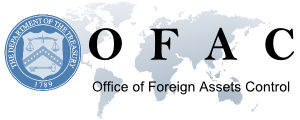Are you Dreaming of an OFAC SDN Designation?

I spend a lot of time online. This is due, in part, to the fact that one of my favorite past times is going on Twitter and hearing the endless roar of non-sanctions practitioners (a.k.a. lay persons) scream about who should be on the OFAC SDN List, and complain about why the subject of their ire isn’t on the list. If you listen to the Twitter mob, everyone from Sean Penn, to the Night King, to the President of the United States should be on the SDN List.
While I usually greet such cries for designation with a pair of raised eyebrows and/or a classic head shake, there are sometimes valid questions as to why sanctions have not been placed on a particular individual or entity. Indeed, there certainly have been plenty of public cases where the factual allegations either in the press or by some law enforcement agency (foreign or domestic) suggest that a basis for designation exists under one of OFAC’s many sanctions programs. Further, while it is often the case that investigations into the propriety of designating a particular target are initiated due to some highly classified information, they can also be initiated by tips from the public or media reports. So why is it that some parties are placed on the OFAC SDN List, while others–seemingly deserving of such identification–are not?
This can be for a host of reasons, but there are really two main reasons why the public’s subject of ire du jour has not (yet) being designated: 1) lack or resources; and/or 2) consideration for other agencies’ investigations or missions.
As this blog (and my Twitter account) has repeatedly made clear, OFAC–one of our government’s most important national security law enforcement agencies–is understaffed and under-budgeted. Thus, their failure to designate more parties is due in large part to a lack of resources. While a ruling from the court of public opinion may be enough to initiate an investigation into whether a designation is appropriate, it’s not necessarily enough to provide the evidence needed by OFAC to prepare an evidentiary package justifying a designation. As I have noted previously, OFAC’s evidentiary packages are all subject to legal review under the Administrative Procedure Act and are reviewed not only by Chief Counsel-Foreign Assets Control, but also by the Justice Department, the State Department, and other interested federal agencies. Anyone who has worked in or with the federal government knows that such inter-agency reviews take time, and that the more stakeholders involved, the greater the potential for delay.
Further, OFAC is often also working on these designations with the Justice Department and other agencies as those agencies pursue other investigations or cases. As such, OFAC must consider the equities of those agencies in determining whether and when to make a designation. As part of that process, OFAC will often consult the State Department and the Justice Department and get their concurrence before making a designation. In addition, OFAC is mindful not to disrupt law enforcement cases, so if a prosecution may be proceeding in short order, OFAC may not designate the party for fear of disrupting that investigation or prosecution. Moreover, OFAC may hold back on designating parties where the designation relies on classified information, confidential informants, other sources that could be jeopardized by the designation.
Thus, you shouldn’t be discouraged if OFAC has yet to designate someone you don’t like; there is still time. Indeed, in some of the delisting cases I have worked on, I have seen OFAC make a decision to designate a party, and then not actually announce the designation until two years later. This just goes to show you that the process of deciding to who to designate a party, and when to designate them, is a long and complicated one. Now, whether such delays cause OFAC to rely on purely historical–and potentially stale–information to make such a designation….that’s another topic for another post. Stay tuned.
The author of this blog is Erich Ferrari, an attorney specializing in OFAC matters. If you have any questions please contact him at 202-280-6370 or ferrari@falawpc.com


